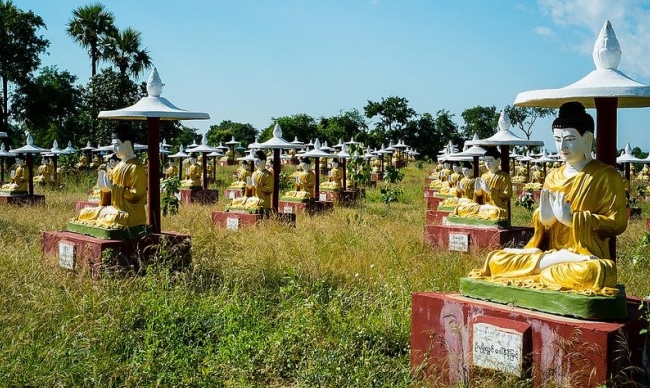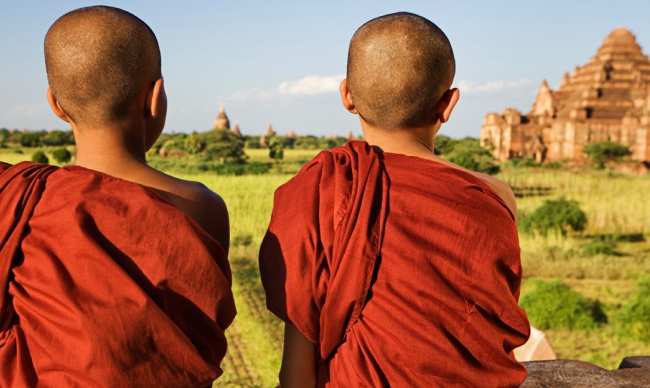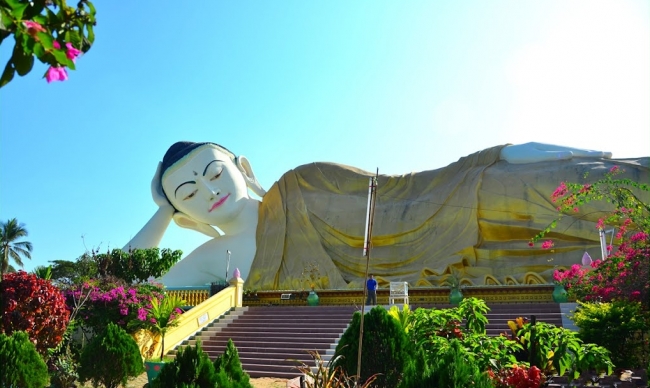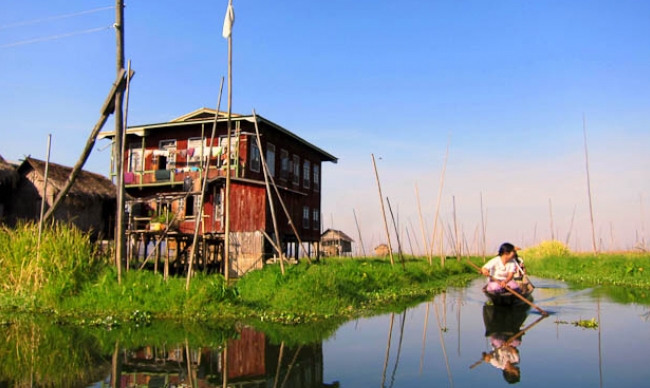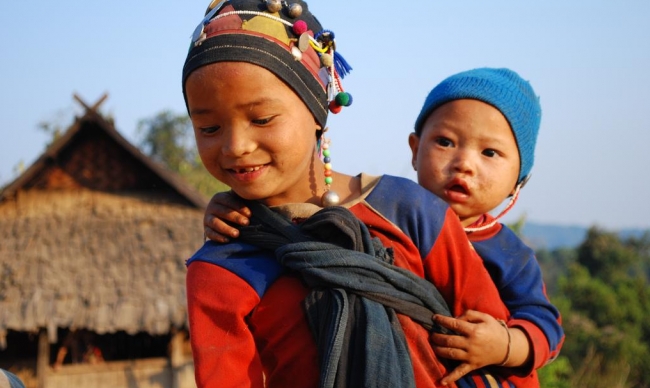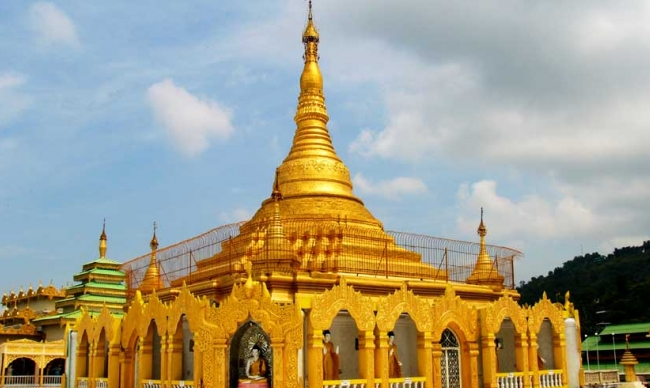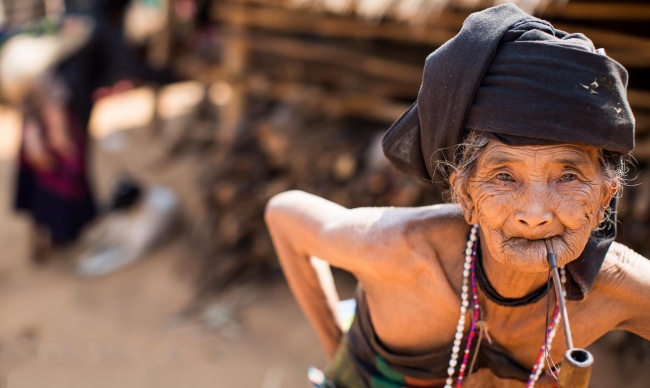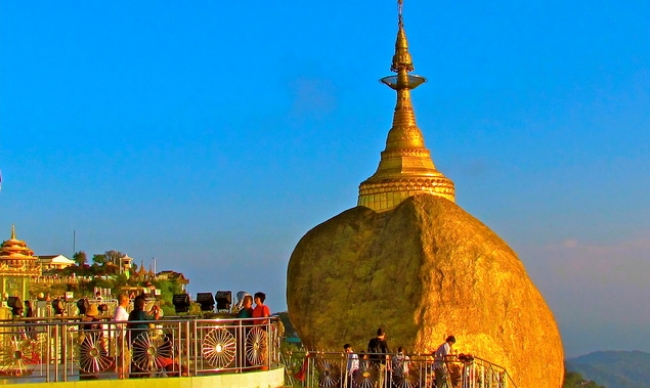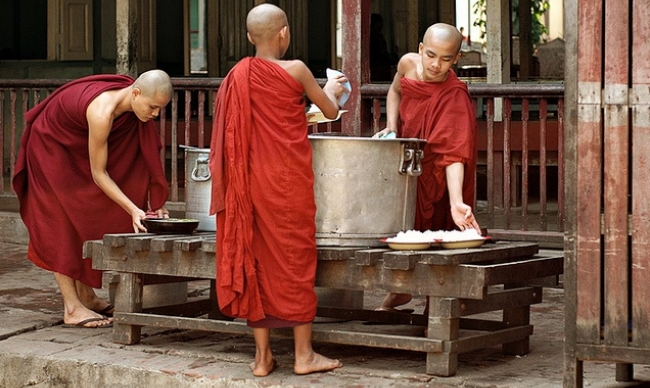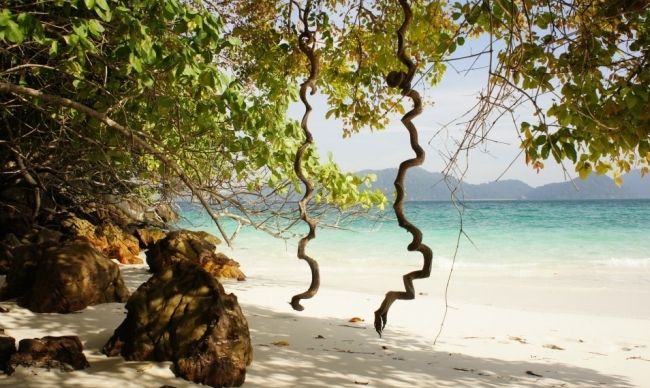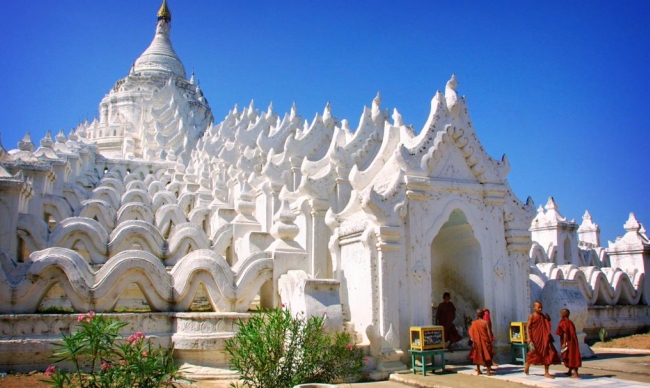Quick Facts:
- Location: 136 km northwest of Mandalay
-
Status: a major trading and commercial centre among the Chindwin valley
-
Area: 10,041.8 square km (Monywa District)
-
Population: 182,011 (2006 – Monywa Town)
-
Highlight: Buddha architecture
-
Major tourist attraction: Mohnyin Thambuddhei Paya
If you are Buddhism followers or love the beauty of Buddha architecture, it will be a big mistake if you pass Monywa, one of the attractions in Myanmar. This city lies on the eastern bank of Chindwin River, serving as a major trade center for India and Burma through Kalay Myo road and Chindwin River.
Given curiosity, people coming here sometimes wonder about the name of this beautiful city. “Monywa” can be split into “mon” and “ywa” to refer to a romantic legend through the history of Myanmar. Monywa, in the time of the legend, was merely a village. “Mon” means “cake or snack food”, and “ywa” is the way Myanmar call the village. It is said that once a Myanmar King felt in love for a cake seller from this village and conferred Queen on her. However, this event did not enhance the position of the city much. It was not until 1886 with the Annexation, the village became the Headquarter of the Lower Chindwin District and then soon carved the image of a buzzing city right after the trade border legalization with India a few years later.
Coming to this city, you will be fascinated by the world of Buddhism spreading through each corner here. The most typical case that needs to be mentioned is Thanboddhay Pagoda (also known as Mohnyin Thambuddhei Paya), a massive Buddhist complex in Monywa, Myanmar. It is a gilded world, brightly screaming out praise for Buddha through colorful celebration. Throughout the area, each pillar and tower of the Pagoda is carefully and completely covered with images of Buddha.
From statues inside the pagoda, to miniatures climbing the sides of the building itself, there are 500,000 depictions of Buddha in total. Although it was originally built in the early 14th century, it was reconstructed in 1939, and is incredibly preserved in its golden form.
Unlike many other temples in Myanmar, the entrance is not guarded by lions. Instead, two imposing white elephants stand out against their shimmering backdrop. Since its reconstruction, the pagoda has been one of the largest tourist attractions in Myanmar, drawing awe-struck tourists and pious religious visitors alike.
Besides Thanboddhay Pagoda, you need to see Pho Win Hill. Pho Win Hill is located on the west bank of Chindwin River and 25 kilometers west of Monywa. It is about 20 minutes walk up the hill. There are about 900 sandstone caves containing many carved Buddha images and well preserved mural paintings. Some caves have beautiful exterior decorations. Some caves have large collections of ancient Buddha images some of which have been covered in gold leaf by local pilgrims. There are wonderful mural paintings in vivid colors representing Burmese life and Jataka stories. Pho Win Hill’s unique Buddha images and precious paintings have been dated to between the 14th and 18th centuries. This hill is thought to be South East Asia’s richest collection of Buddhist mural paintings and images.
If you like Pho Win Hill, you should not miss Shwe Ba Hill, which is located on the west bank of Chindwin River just beyond the Pho Win Hill. Many caves and temples are carved out from the surrounding volcanic rocks and filled with ancient Buddha images. 13th century mural paintings can be seen in some of the caves inside walls. Those caves and temples are between the walk through narrow cliffs which is lead down by stone stairs.
A trip to Monywa will certainly make you satisfied and relax not only because of attractive scenes but also the peaceful atmosphere and hospitability of people who follow Buddhism there. Getting in Monywa is easy, but getting out is rather difficult – you simply do not want to leave.
